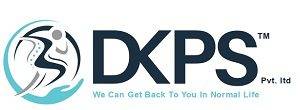- Home
- About Us
- DKPS Dealing
- BLOG
- Delhi NCR
- Delhi
- Physiotherapy at Home Near Me | Physiotherapist in South Delhi
- Best Chiropractor in Delhi
- Physiotherapist in Delhi
- Cupping Therapy in Delhi
- Home Nursing Services in Delhi
- Needle Therapy for Back Pain
- Sports Injury Physiotherapy
- Best Physiotherapist Visit at Home in Rohini Sector 24
- Physiotherapy at Home In Rohini Sector 9 |
- Physiotherapist in Pitampura | Physiotherapy at Home in Pitampura
- Physiotherapy at home in Rohini sector 29
- Physiotherapist in Paschim Vihar
- Physio home visit | Home Visit Physiotherapy |
- Physiotherapist in Saket | Best Physiotherapist in Saket |
- Physiotherapist In Janakpuri | Best Physiotherapist in Janakpuri |
- Best Physiotherapist in Punjabi Bagh | Punjabi Bagh Physiotherapist |
- Best Physiotherapist Service at Home in Dwarka, Delhi
- Best Physiotherapist in Chandigarh at Home Visit
- Faridabad
- Gurugram
- Noida
- Best Physiotherapy Gorakhpur
- Best Physiotherapist in Lucknow | Physiotherapist in Lucknow near me |
- Delhi
- Mumbai
- Delhi NCR
- Department
- Doctors
- Gallery
- Packages
- Contact Us
- Home
- About Us
- DKPS Dealing
- BLOG
- Delhi NCR
- Delhi
- Physiotherapy at Home Near Me | Physiotherapist in South Delhi
- Best Chiropractor in Delhi
- Physiotherapist in Delhi
- Cupping Therapy in Delhi
- Home Nursing Services in Delhi
- Needle Therapy for Back Pain
- Sports Injury Physiotherapy
- Best Physiotherapist Visit at Home in Rohini Sector 24
- Physiotherapy at Home In Rohini Sector 9 |
- Physiotherapist in Pitampura | Physiotherapy at Home in Pitampura
- Physiotherapy at home in Rohini sector 29
- Physiotherapist in Paschim Vihar
- Physio home visit | Home Visit Physiotherapy |
- Physiotherapist in Saket | Best Physiotherapist in Saket |
- Physiotherapist In Janakpuri | Best Physiotherapist in Janakpuri |
- Best Physiotherapist in Punjabi Bagh | Punjabi Bagh Physiotherapist |
- Best Physiotherapist Service at Home in Dwarka, Delhi
- Best Physiotherapist in Chandigarh at Home Visit
- Faridabad
- Gurugram
- Noida
- Best Physiotherapy Gorakhpur
- Best Physiotherapist in Lucknow | Physiotherapist in Lucknow near me |
- Delhi
- Mumbai
- Delhi NCR
- Department
- Doctors
- Gallery
- Packages
- Contact Us
Archives
- Home
- Archives
What is Frojen Shoulder ?

Frojen Shoulder- Defination
Frozen shoulder, clinically known as adhesive capsulitis, is a condition characterized by pain and stiffness in the shoulder joint. It typically progresses through stages, starting with pain and discomfort, followed by increasing restriction of movement. The condition limits the ability of the affected individual to perform everyday activities, affecting their quality of life.
Causes of the Frojen shoulder
The precise cause of frozen shoulder remains elusive, but certain factors are associated with its development. These include:
1. Age and Gender: Frozen shoulder commonly occurs in individuals between the ages of 40 and 60, with women being more susceptible than men.
2. Medical Conditions: Conditions like diabetes, cardiovascular disease, and thyroid disorders have been linked to an increased risk of developing frozen shoulder.
3. Immobilization: Prolonged periods of shoulder immobilization due to injury, surgery, or other medical conditions can contribute to the development of frozen shoulder.
Signs, Physical Examination, and Symptoms
The signs and symptoms of frozen shoulder progress gradually and can be categorized into different stages:
1. Pain: The initial stage is characterized by persistent shoulder pain, often worsening at night.
2. Stiffness: As the condition progresses, stiffness in the shoulder joint becomes more pronounced, limiting the range of motion.
3. Loss of Function: The affected individual experiences a significant reduction in the ability to perform everyday activities involving the shoulder, such as reaching overhead or behind the back.
Investigations and Blood Tests
While the clinical presentation is often sufficient for a preliminary diagnosis, additional investigations may be conducted to confirm the condition and rule out other potential causes of shoulder pain. Imaging studies like X-rays and MRI scans can help visualize the extent of inflammation and any structural changes in the shoulder joint. Blood tests may be performed to assess for underlying medical conditions that could contribute to the development of frozen shoulder, such as diabetes.
Diagnosis and Differential Diagnosis
Diagnosing frozen shoulder involves a thorough evaluation of the patient’s medical history, physical examination, and the results of imaging studies. The diagnosis is typically based on the characteristic symptoms of pain and stiffness, along with the exclusion of other potential causes. Differential diagnosis may include conditions such as rotator cuff injuries, arthritis, and bursitis.
Treatment: DKPS Physiotherapy Approach
DKPS Physio Care offers a comprehensive and personalized approach to treating frozen shoulder, emphasizing non-invasive and evidence-based techniques. The physiotherapy treatment is designed to address the pain, stiffness, and functional limitations associated with frozen shoulder. The key components of DKPS’s physiotherapy treatment for frozen shoulder include:
1. Pain Management: Targeted interventions to alleviate pain, including manual therapy, therapeutic exercises, and modalities such as heat and cold therapy.
2. Range of Motion Exercises: Gradual and progressive exercises aimed at improving the range of motion in the affected shoulder joint.
3. Strengthening Exercises: Specific exercises to strengthen the muscles surrounding the shoulder joint, enhancing stability and function.
4. Joint Mobilization: Techniques to improve joint mobility and reduce stiffness, performed by skilled physiotherapists.
5. Patient Education: Empowering patients with knowledge about their condition, including self-management strategies and home exercises to maintain progress between sessions.
Outcome and Prognosis
With diligent adherence to the prescribed physiotherapy regimen, many individuals experience significant improvement in pain, stiffness, and overall function. The duration of treatment can vary based on the severity of the condition and individual response to therapy. Regular follow-ups with the physiotherapy team at DKPS help monitor progress and make necessary adjustments to the treatment plan.
In conclusion, Dr. Singh Physio Care, operated by DKPS Pvt Ltd, stands at the forefront of providing effective and compassionate care for individuals with frozen shoulder. Through their innovative physiotherapy approach, they aim to not only alleviate symptoms but also restore optimal function and improve the quality of life for their patients. With a commitment to evidence-based practice and patient-centric care, DKPS Physio Care continues to make a positive impact in the field of musculoskeletal health.
